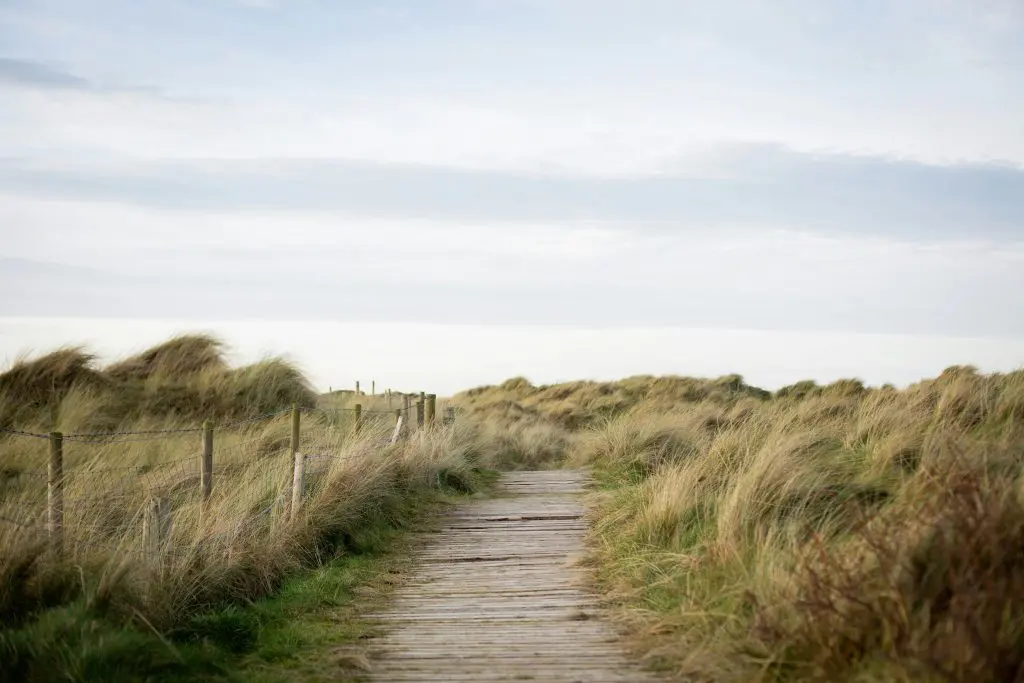
No Bathing at Portstewart Strand After Blue-Green Algae Detected Portstewart Strand, a much-visited sandy beach on Northern Ireland’s north coast, has been the subject of an urgent safety advisory after a significant amount of blue-green algae scum was detected both in the water and on the beach. The Department of Agriculture, Environment and Rural Affairs […]
Portstewart Strand, a much-visited sandy beach on Northern Ireland’s north coast, has been the subject of an urgent safety advisory after a significant amount of blue-green algae scum was detected both in the water and on the beach. The Department of Agriculture, Environment and Rural Affairs (DAERA) said that the scum poses “potential health risks” and has advised the public not to enter the water and to keep pets at a safe distance from any visible scum.
Blue-green algae (also known as cyanobacteria) are naturally occurring micro-organisms found in freshwater and, in some cases, coastal waters. Under favourable conditions (such as warm temperatures, high nutrient levels and stagnation), these organisms can form dense mats or scums on or near the water surface.
When these blooms occur, they can release toxins or create conditions that are harmful to both humans and animals. For example, DAERA state that exposure to high levels of blue-green algae can cause illness in people and may even lead to animal deaths.
According to DAERA, routine sampling carried out on Monday at Portstewart Strand detected a “significant” quantity of scum in the water and on the beach. The site is managed by the National Trust. In light of the detection, DAERA has advised the National Trust to issue a formal “advice against bathing” notice at the beach until further notice.
DAERA explains that contact with high levels of blue-green algae may give rise to various health problems. For humans, this may include diarrhoea or vomiting, skin, eye or throat irritation, allergic reactions or breathing difficulties. For animals, particularly dogs, which may swim in or drink from contaminated water, the outcome can sometimes be much more serious, including fatal illness.
Avoid entering the water at Portstewart Strand while the advisory remains in place.
Keep pets away from any visible algae scum or mats on the beach or in the water.
Heed signage and local instruction from the National Trust or beach‐management staff; they will post notices if conditions change.
Report any suspected algae blooms or scums to the Northern Ireland Environment Agency (NIEA) via their hotline (0800 80 70 60) or through the Bloomin’ Algae App.
If you notice symptoms (in yourself or pets) after water contact, seek medical or veterinary advice and mention possible algae exposure.
This incident at Portstewart is part of a broader pattern of blue-green algae occurrences in Northern Ireland’s waterways in recent years. For instance, sizeable blooms have been observed at Lough Neagh, and authorities note that algae from the lough can travel downstream via the River Bann and impact coastal bathing waters.
Until further sampling confirms that algae levels are back to normal and a formal notice is lifted, the advice against bathing remains in place at Portstewart Strand. Visitors should continue to stay alert and respect all warnings. Restoring safe conditions depends on monitoring water-quality data, algal behaviour (including transport and decay), and the management of nutrient and runoff pressures inland. The National Trust and DAERA are keeping the situation under review and will update the public when it is safe to resume bathing.
While the beach remains a spectacular and popular destination, swimming and other water-based activities are currently not advised at Portstewart Strand owing to the presence of blue-green algae scum. Following official guidance and staying on the safe side will allow you to continue enjoying the location responsibly.
The discovery of blue-green algae at Portstewart Strand highlights the ongoing environmental challenges facing Northern Ireland’s waterways. While the beach remains open for visitors, authorities have made it clear that bathing and direct contact with the water should be avoided until further notice. The Department of Agriculture, Environment and Rural Affairs (DAERA) and the National Trust continue to monitor the site closely, with public safety as their top priority.
By following official advice, keeping pets away from the water, and staying informed through local updates, visitors can help protect both their own health and the wellbeing of the area’s wildlife. Though the situation is temporary, it serves as an important reminder of the need to preserve water quality and remain vigilant when enjoying Northern Ireland’s natural beauty.
At All-Ireland Sustainability, we’re committed to building a greener, fairer island, together. Stay informed on the latest environmental initiatives, community action, and policy developments shaping sustainability across Ireland, North and South.
👉 Sign up for our newsletter today and be the first to hear about upcoming events, expert insights, and ways to get involved.
Whether you’re a seasoned advocate or just starting your journey, new members are always welcome.
Subscribe now and be part of the All-Ireland Sustainability Membership.